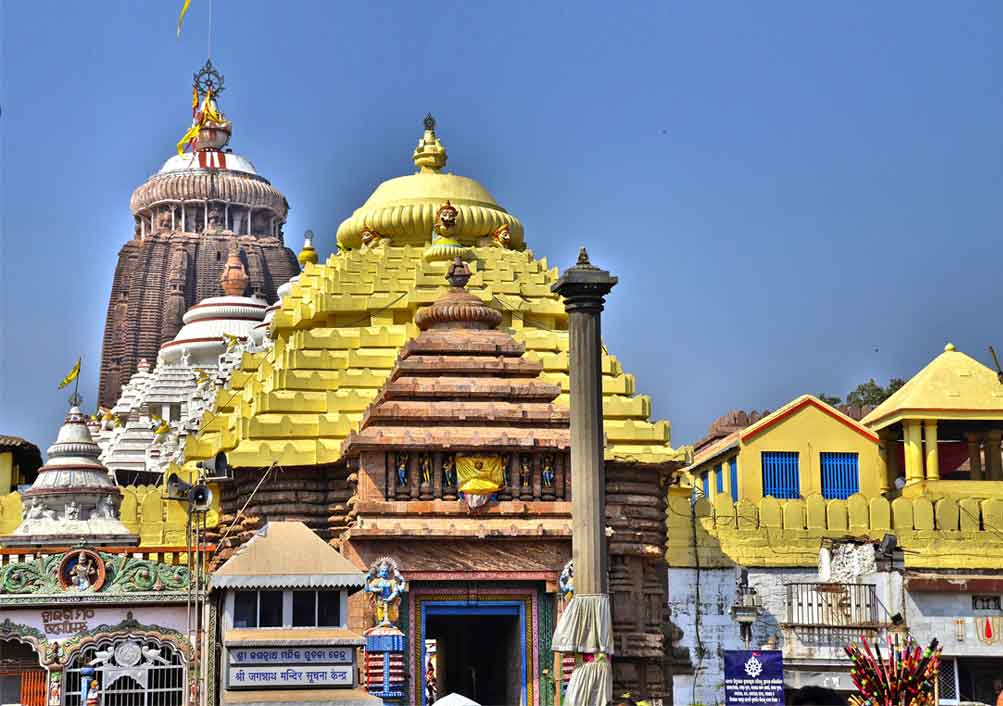In CIVIL APPEAL NO. 4515 OF 2022-SC- Top Court expresses concern over mushroom growth of PILs, dismisses appeal challenging alleged unsanctioned construction activities at Shree Jagannath Temple complex Justices B.R.Gavai & Hima Kohli [03-06-2022]

Read Judgment: ARDHENDU KUMAR DAS Vs. THE STATE OF ODISHA AND ORS
Tulip Kanth
New Delhi, June 6, 2022: Deprecating the practice of filing frivolous petitions, the Supreme Court has imposed costs of Rs 1 lakh each, payable by the appellants to the respondent-Sate and dismissed the appeal filed against the order of the Orissa High Court for not granting an interim order restraining the respondents from proceeding further with the construction activities undertaken within the prohibited area of the Shree Jagannath Temple complex.
Referring to the judgment of the Apex Court in Mrinalini Padhi vs. Union of India wherein it was found that that redevelopment plan around the Temple was mainly to decongest the area for the benefit of pilgrims and to make the city of Puri a world heritage city, the Division Bench of Justice B.R.Gavai and Justice Hima Kohli stated, “It is amply clear that the construction activities which are being undertaken, are being undertaken in pursuance of the directions issued by a three-Judge Bench of this Court in the case of Mrinalini Padhi (supra).”
The facts of this matter were such that a Public Interest Litigation came to be filed before the High Court of Orissa by one Dillip Kumar Baral challenging the alleged unsanctioned construction activities undertaken by the respondents within the prohibited area of the Shree Jagannath Temple complex in contravention of the provisions of the Ancient Monuments and Archaeological Sites and Remains Act, 1958. When the matter was listed on April 21, 2022, certain further orders came to be passed.
Subsequently, the order dated May 9, 2022 had been passed by the High Court by which the matter was posted on June 22, 2022 and no interim order restraining the respondents from proceeding further with the construction was passed. It was this order which was impugned in the present Special Leave Petitions. The petitioner-Ardhendu Kumar Das in a Special Leave Petition, claiming to be an ardent devotee of Lord Jagannath, had filed an Intervention Application before the High Court, which is pending consideration. The petitioner had therefore filed an Interlocutory Application seeking permission to file the present Special Leave Petition challenging the same order of the Division Bench.
Speaking for the Bench, Justice B.R.Gavai opined that undisputedly the competent authority had complied with the procedure as required under Section 20D of the Act and the National Monuments Authority had granted its permission for the work, which was undertaken. The Bench also took note of the fact that the construction was being carried out for the purpose of providing basic and essential amenities like toilets for men and women, cloak rooms, electricity rooms etc. These are the basic facilities which are necessary for the convenience of the devotees at large, added the Apex Court.
Referring to clause (dc) of Section 2 which excludes four categories from the definition of construction, the Bench held that the legislature had deliberately excluded such categories and the purpose behind it was the repairs and renovation of the buildings and the constructions which are necessary for providing basic facilities like drainage, toilets, water supply and distribution of electricity.
In order to clear the confusion of the appellants, the Bench also clarified that the High Court itself had recorded the statement of the Advocate General for State of Odisha that both the ASI and the State Government would work together to ensure that no archaeological remains are missed out or damaged. Considering these aspects, it was held that the concern of the appellants was already taken care of in the impugned order but still a hue and cry was made for the petitions to be listed.
Holding that such construction was necessary in the larger public interest and there was no prohibition in the statute for doing so, the Bench said, “ In the recent past, it is noticed that there is mushroom growth of public interest litigations. However, in many of such petitions, there is no public interest involved at all. The petitions are either publicity interest litigations or personal interest litigation. We highly deprecate practice of filing such frivolous petitions…It is high time that such so-called public interest litigations are nipped in the bud so that the developmental activities in the larger public interest are not stalled.” Thus, imposing costs, the Bench dismissed the appeals.
Sign up for our weekly newsletter to stay up to date on our product, events featured blog, special offer and all of the exciting things that take place here at Legitquest.




Add a Comment